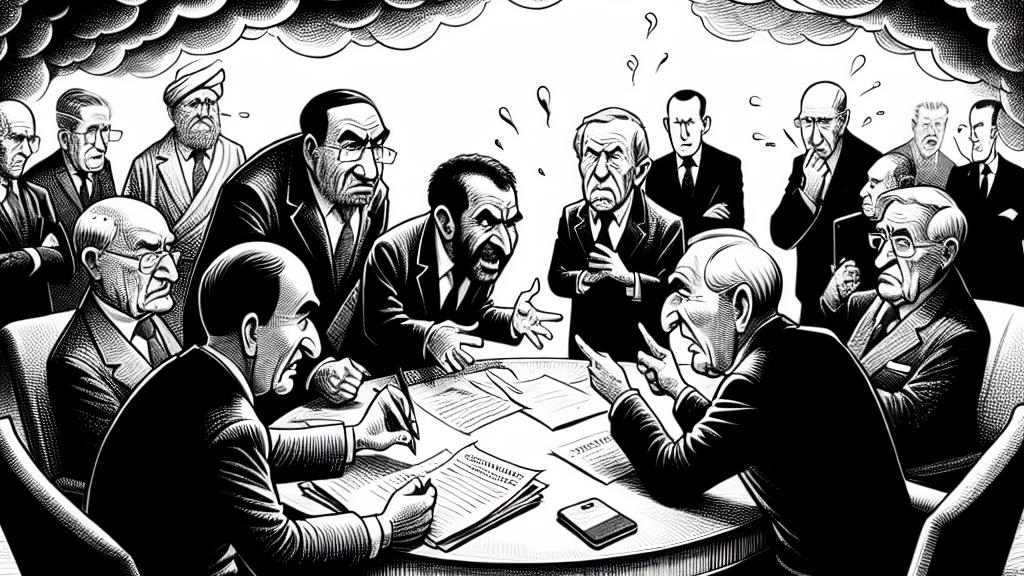Hamas Rejects Ceasefire Proposal: Too Cozy with Israel!
Overview
- Hamas dismisses recent ceasefire proposal, claiming it favors Israeli positions.
- The proposal, backed by Qatar, Egypt, and the United States, follows ongoing military escalations.
- Despite international mediation efforts, Israel persists in military actions in Gaza, complicating ceasefire opportunities.

Understanding the Ceasefire Context
The current ceasefire negotiations take place in a highly volatile atmosphere in Gaza, where ongoing conflict has resulted in substantial casualties and humanitarian crises. Recently, mediators from Qatar, Egypt, and the United States met with both Hamas and Israeli representatives in hopes of brokering a sustainable ceasefire. However, upon receiving the latest proposal aimed at halting the violence, Hamas swiftly rejected it, asserting that it reflected the uncompromising stance of Israeli Prime Minister Benjamin Netanyahu. This letdown indicates the significant barriers negotiators face, as entrenched positions continue to stall progress toward peace.
International Reactions and Military Dynamics
International response to the ongoing conflict has included significant diplomatic efforts, with the United Nations Security Council recently endorsing a U.S.-drafted ceasefire resolution. This resolution was crucial in garnering global support for peace talks and highlighted a rare moment of consensus, as key powers chose not to veto it. Nevertheless, Israel has signaled its intention to continue military operations, particularly in areas like Rafah, further complicating mediation efforts. Despite Hamas's expressed willingness to negotiate, the Israeli government remains adamant about maintaining military pressure, illustrating the delicate balance of power that persists amid escalating violence and humanitarian distress.
Consequences of Ceasefire Rejection for Peace Efforts
Hamas's outright rejection of the latest ceasefire proposal not only reflects internal pressures but also exacerbates the already precarious situation on the ground. The group demands an end to hostilities and the full withdrawal of Israeli forces, while Israeli officials regard such conditions as unacceptable and dangerous. Prime Minister Netanyahu’s firm dismissal of what he labels Hamas's 'capitulation terms' highlights a critical tension: he fears that concession could undermine Israel's security and embolden further aggression. Meanwhile, the humanitarian situation in Gaza is deteriorating, with increasing civilian casualties prompting urgent appeals for humanitarian intervention. This context raises serious questions about the viability of achieving a lasting agreement, as both parties remain entrenched in their positions and the cycle of violence continues.

Loading...